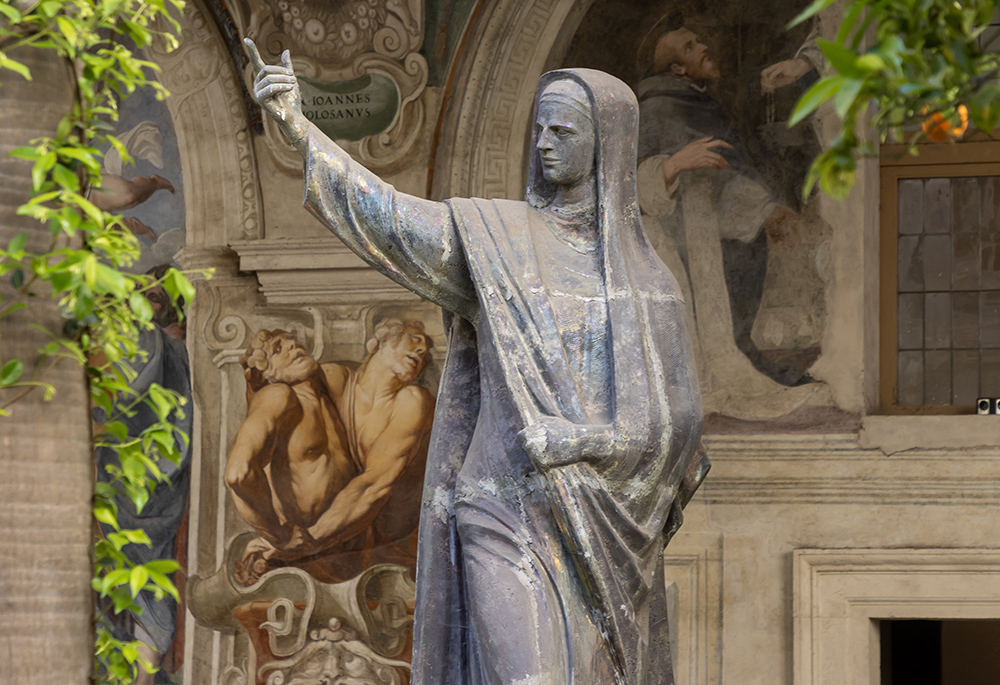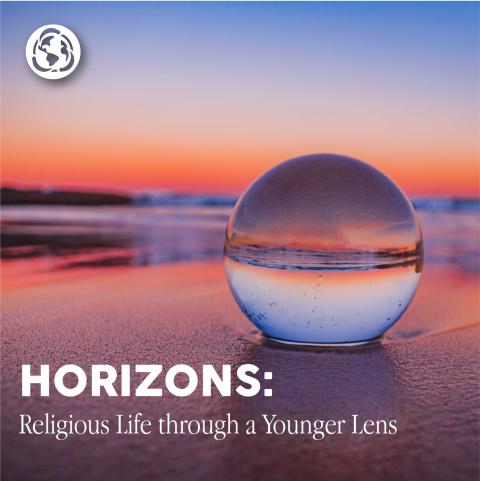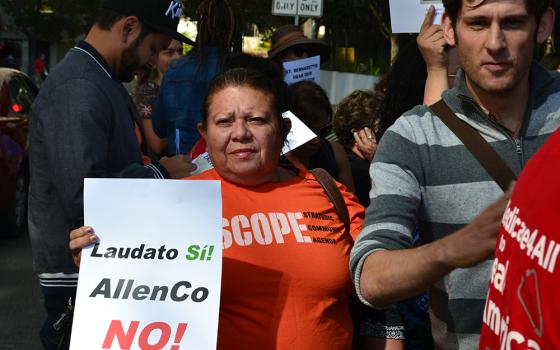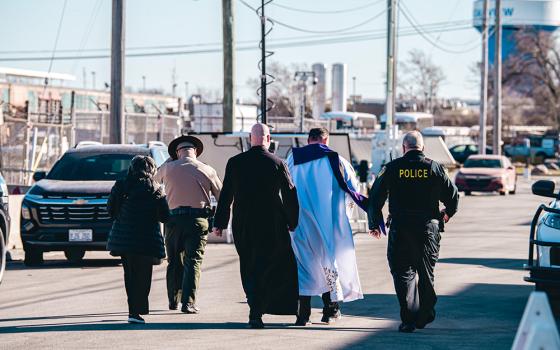
A statue of St. Catherine of Siena is seen in the cloister of the Dominican friars' convent next to the Basilica of Santa Maria Sopra Minerva in Rome April 18, 2024. On Aug. 3, 2025, Sr. Annie Killian professed perpetual vows as a Dominican Sister of Peace. The sisters shared with her the charism from Sts. Dominic and Catherine. (CNS/Pablo Esparza)

On Aug. 3, 2025, I professed perpetual vows as a Dominican Sister of Peace. Six years earlier, I had knocked on the door of our motherhouse chapel, asking the sisters to share their inheritance with me (Luke 12:13). From what I had seen at the congregation's House of Welcome in New Haven, Connecticut, the sisters were "rich in what matters to God" (Luke 12:21).
I could recognize those riches because I first learned what matters to God from my own family: from my mother's deep compassion, my father's unfailing generosity, and my siblings' affectionate care. As I grew into young adulthood, friendship taught me to value honesty, respect differences, and express gratitude. Those are things that matter to God, and they mattered to me as I was discerning, in the words of Mary Oliver, what "to do with [my] one wild and precious life."
The sisters were eager to share with me the charism they had inherited from Sts. Dominic and Catherine of Siena — a legacy of prayer and preaching, community and study. St. Dominic modeled how to talk with God as a friend and how to dialogue with people coming from different perspectives. Catherine of Siena called us to "cry out with a thousand tongues" since "the world is rotten because of silence."
I was drawn by that inheritance — the Dominican charism of contemplating truth and preaching the peace of Christ. I choose to dedicate my whole life to God in community, because I have come to know the liberating power of the vows, and I am convinced that our communal witness is needed in this time of escalating global violence.
The vows of poverty, chastity and obedience have become the lens through which I see the world. They help me wake up from illusions of self-sufficiency and superiority. It would be easy for someone like me — a white person in the U.S., a member of the professional class — to become an image of the rich fool in Luke's Gospel (12:16-21) prioritizing my own comfort and entitlement to limitless consumption. We live in a nation that admires the rich and powerful, — those who shore up their wealth by building bigger walls, bigger bombs, bigger detention centers — while they give themselves bigger tax breaks.
The vows help me live a different kind of life. Poverty reminds me that everything we have is gift — the soil, the air, the water, the people who sustain me. The rich man in the parable saw the bountiful harvest of his land and claimed it as his own. I am learning that nothing truly belongs to me. Earth and our fellow beings generously provide for our needs, and we are to use those gifts responsibly, remembering the principle of Catholic social teaching that "the goods of creation are destined for all" — and it is the poor who have a special claim to them.
Advertisement
Obedience has become for me a practice of deep listening — to God's voice, to community, and to the needs of our neighbors. I often notice how the rich man in the parable speaks only to himself. In his greed and narcissism, he has cut himself off from the community. I imagine that if he had asked Jesus what to do with all that grain, the answer would have been: "Will you feed my sheep?"
When I listen, I begin to hear the voice of God saying: Will you feed the children who are being starved in Gaza and Sudan? Will you feed the families in this country who cannot afford to buy groceries? Pope Francis called us to listen to the cry of Earth and the cry of people who have been made poor. Listening shapes my practice of obedience, and it takes place within community.
Celibacy has also become a way of loving that draws me out of myself and into relationship. It reminds me to share the gifts I have for bringing forth life. "I came that they may have life and have it abundantly," Jesus says (John 10:10). I am called to share my gifts, not to hoard them and when I share life with my sisters, friends and neighbors, I see the abundance of God's love.
I choose vowed commitment because I am ever more deeply aware of my own need and desire for transformation. Living the vows is the way I can most authentically listen, love and serve.
Catherine of Siena helps me understand this mystery of love. In her Dialogue, she discovers God's goodness within herself, uniting her to Spirit and to others. God says, "Love of Me and of her neighbor are one and the same thing." I think about that often. My love for God becomes real only in how I love the people before me — whether that's through friendship, teaching, or small gestures of care.
Catherine also reminds me that we are created to depend on one another. God tells her, "I wanted to make you dependent on one another so that each of you would be my minister, dispensing the graces and gifts you have received from me." I see that truth every day in community life. My sisters challenge and encourage me whether I like it or not. They reveal my blind spots and teach me how to love better. Through them, I meet Christ in a thousand ordinary ways.
I choose vowed commitment because I am ever more deeply aware of my own need and desire for transformation. Living the vows is the way I can most authentically listen, love, and serve. And, although imperfect, my sisters and friends love me just as I am. Their gift of love frees me to cherish my neighbor — those who are near and dear to me, and those I have yet to meet.
God confides in Catherine that all he wants is love. More and more, I find that is all I want too.








